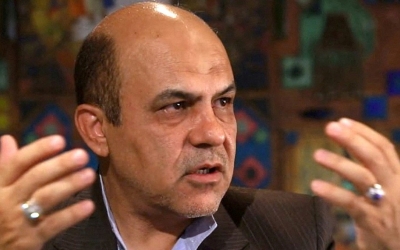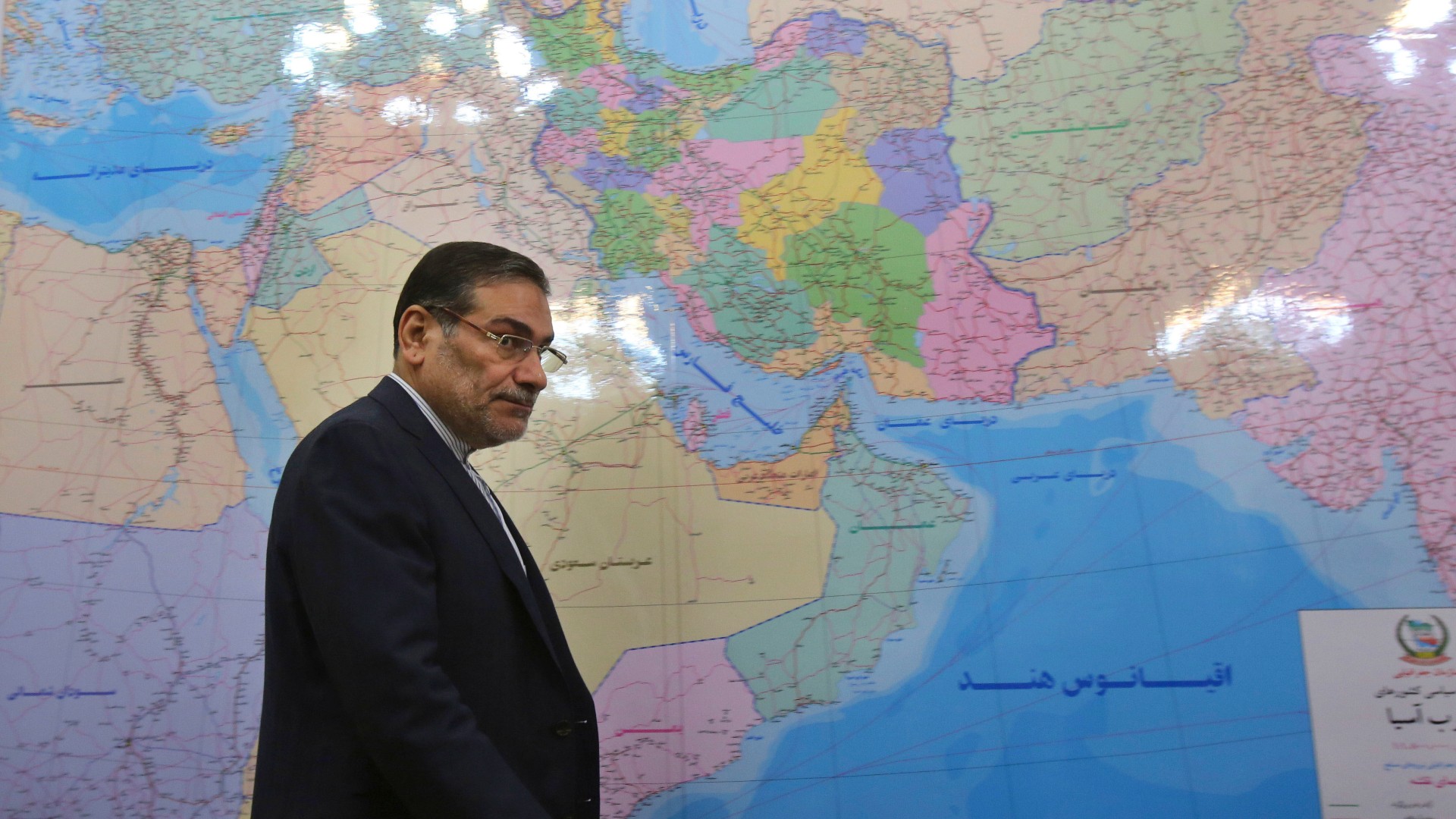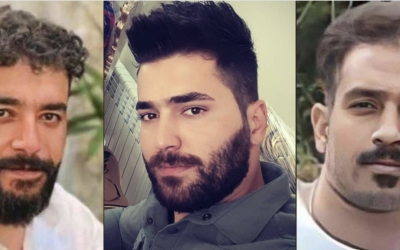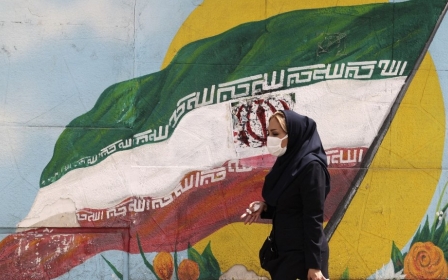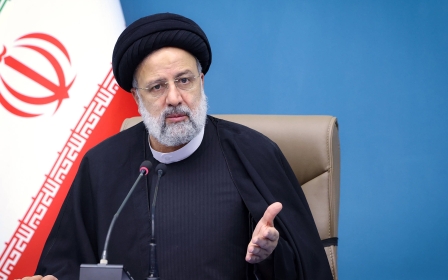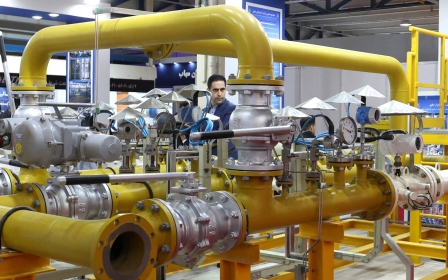Iran: Outgoing security chief Shamkhani planning bid for presidency
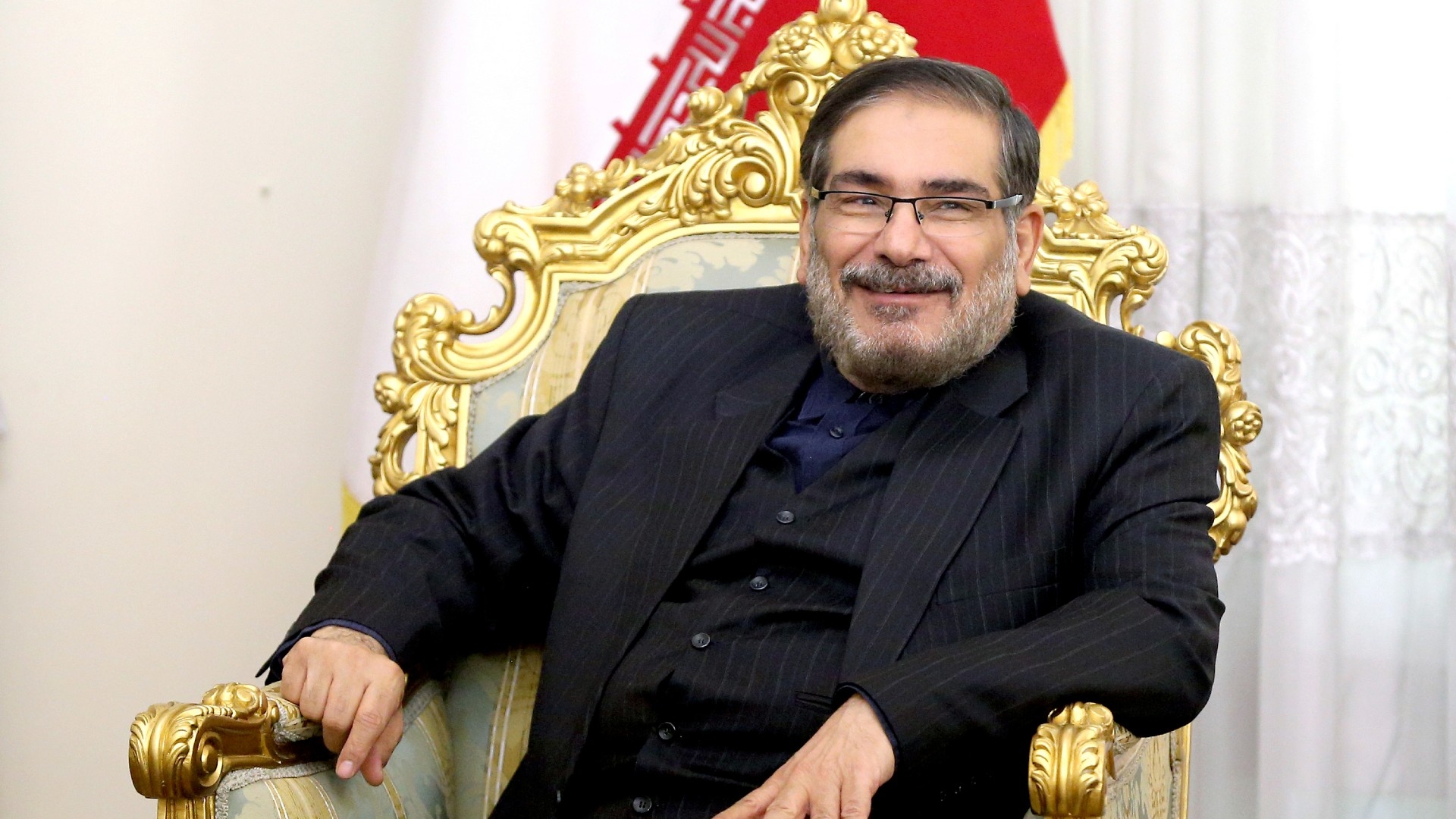
Ali Shamkhani, who on Monday stepped down as Iran’s most senior security official, is planning a bid for the presidency, sources told Middle East Eye.
Before he left his post, the veteran official sought to boost his public popularity by asking Supreme Leader Ali Khamenei to allow him to finalise a nuclear deal with the US, according to sources close to Shamkhani within conservative establishment circles.
President Ebrahim Raisi, a conservative judge from the principlist camp, was elected in 2021 with the backing of Iran’s ruling establishment.
However, his popularity, both with the public and within the establishment, has since waned as his government has failed to fix the country’s acute economic issues.
With rumours circulating that a second term for Raisi could be unlikely as a result, a source close to Shamkhani told MEE the recently departed secretary of the Supreme National Security Council is planning to run himself.
New MEE newsletter: Jerusalem Dispatch
Sign up to get the latest insights and analysis on Israel-Palestine, alongside Turkey Unpacked and other MEE newsletters
Shamkhani's potential candidacy is backed by his vast political experience, his strong connections within the Islamic Revolutionary Guard Corps (IRGC), and his considerable wealth.
A former conservative official told MEE that if Shamkhani receives permission from Khamenei to run, the Guardian Council, a body that vets candidates for elections, would certainly approve his candidacy.
During Raisi’s presidency, Shamkhani has boosted his reputation and is increasingly being seen as an influential figure in Iran's foreign policy decision-making, especially in the absence of a powerful foreign minister.
He has been credited with playing a key role in the recent breakthrough deal with Saudi Arabia to restore diplomatic ties and ease regional tensions, which he signed in Beijing.
A principlist source familiar with these developments told MEE that Shamkhani sought to boost his status further by writing to Khamenei seeking permission to finalise the Joint Comprehensive Plan of Action (JCPOA) nuclear deal, but the supreme leader didn’t respond.
“Shamkhani is playing a double game: he has written to the leader, saying 'let me do the work on the agreement', but in the end, the responsibility will be on the leader's shoulders,” the source said.
“And the leader does not intend to take responsibility at all regarding the revival of the JCPOA.”
Despite his political and financial clout, there are concerns within the conservative camp about Shamkhani's sons.
According to the principlist source, Shamkhani's sons own a shipping company with dozens of oil tankers that are rumoured to be used to smuggle Iranian oil and therefore they would have benefitted financially from US sanctions on Iran.
Such accusations could impact Shamkhani's electoral chances.
A headache for Raisi
Shamkhani’s growing profile and influence have been a headache for Raisi.
A conservative source told MEE that Raisi’s inner circle, including his son-in-law, are staunchly against Shamkhani and have long been pushing for him to be removed.
Despite reaching an initial consensus with Khamenei's office to replace Shamkhani with Abdulreza Rahmani Fazli, who as interior minister in 2019 is known as leading the deadly crackdown on protests that took place that year, the plan ultimately fell apart in 2022.
Shamkhani angered Raisi’s administration when nuclear negotiator Ali Bagheri Kani briefed him directly on talks with the US.
According to the conservative source, Shamkhani copied confidential reports and shared them with several people, including former nuclear negotiator Saeed Jalili.
Jalili’s allies then lobbied against the draft agreement and undermined its progress in March 2022.
Exasperated, Kani wrote a letter to the supreme leader's office complaining about the reports being leaked, the conservative source said.
Matters worsened when Raisi's team attempted and failed to remove Shamkhani when Alireza Akbari, a close associate who was charged with spying for the UK, was executed in January.
Raja News, which is aligned with Raisi and his son-in-law, reported on 13 January that Akbari had written articles supporting Shamkhani remaining secretary of the Security Council.
Nevertheless, Shamkhani's close relationship with Khamenei protected him.
According to the source in the conservative camp, Shamkhani offered his resignation during last year’s anti-establishment protests that were sparked by the death of 22-year-old Kurdish woman Mahsa Amini in police custody. But Khamenei refused to accept it, showing the strength of their rapport.
Despite this, Shamkhani left his role and was replaced by Ali Akbar Ahmadian, a Republican Guard general.
While Nour News, known to be close to Shamkhani, claimed he had decided to leave the council on his own, no resignation letter was published. This indicates he was removed.
A former MP told MEE: “While Raisi appointed General [Ali Akhbar] Ahmadian in place of Shamkhani, this didn’t mean that he did this appointment on his own. This was definitely the leader’s decision. Ahmadian is not necessarily the Raisi team’s preferred choice, but they are relieved to see him changed.”
Shamkhani, meanwhile, has been made a member of the Expediency Council, an advisory board for the supreme leader.
Previous candidacy
Shamkhani has a history of presidential ambitions.
Born in 1955 in Ahvaz, a city in southwestern Iran, Shamkhani was raised in an ethnic Arab family. He rose to become a senior Republican Guard commander during the Iran-Iraq war of the 1980s.
From 1981 to 1989, he served as deputy commander-in-chief of the IRGC. He then served as the chief commander of Iran’s navy for 10 years while simultaneously chairing the command of the Republican Guard’s naval force.
In 1997, when reformist Mohammad Khatami was elected as president, Shamkhani was appointed defence minister, a position he held for eight years.
In 2001, he decided to run for president and compete against Khatami. Shamkhani’s candidacy was coordinated with Khamenei’s office, a former conservative official told MEE, and was aimed at undermining Khatami’s chances.
But despite this, Khatami won a second term.
During the 2005-2013 presidency of the principlist Mahmoud Ahmadinejad - who was backed by Khamenei - Shamkhani maintained a critical stance. Yet he still managed to maintain positive relations with the supreme leader, the former official said.
Reformist-backed president Hassan Rouhani appointed him secretary of the Security Council in 2013 as a result of their longstanding friendship.
However, they grew apart because Shamkhani opposed the 2015 nuclear deal, which was Raisi’s flagship policy.
According to a former official in Rouhani's government, during the nuclear talks, Rouhani ordered Shamkhani to fly to Vienna, where the negotiations were taking place.
However, Shamkhani declined. Rouhani even stopped a plane from departing to give Shamkhani time to get there, but the security chief flatly refused, further straining their relationship.
During his second term, Rouhani planned on replacing Shamkhani with Akbar Nategh Nouri, a veteran politician and a prominent leader of the moderates.
Although Nategh Nouri initially gave his approval, he later changed his mind as he did not want to engage in a confrontation with powerful figures, the former Rouhani government official said.
According to the source, Shamkhani also played a large role in helping conservative parliament Speaker Mohammad-Baqer Qalibaf undermine the chances of the nuclear deal being resumed in February 2021 when MPs passed a bill that greatly hindered the negotiations.
Middle East Eye delivers independent and unrivalled coverage and analysis of the Middle East, North Africa and beyond. To learn more about republishing this content and the associated fees, please fill out this form. More about MEE can be found here.


